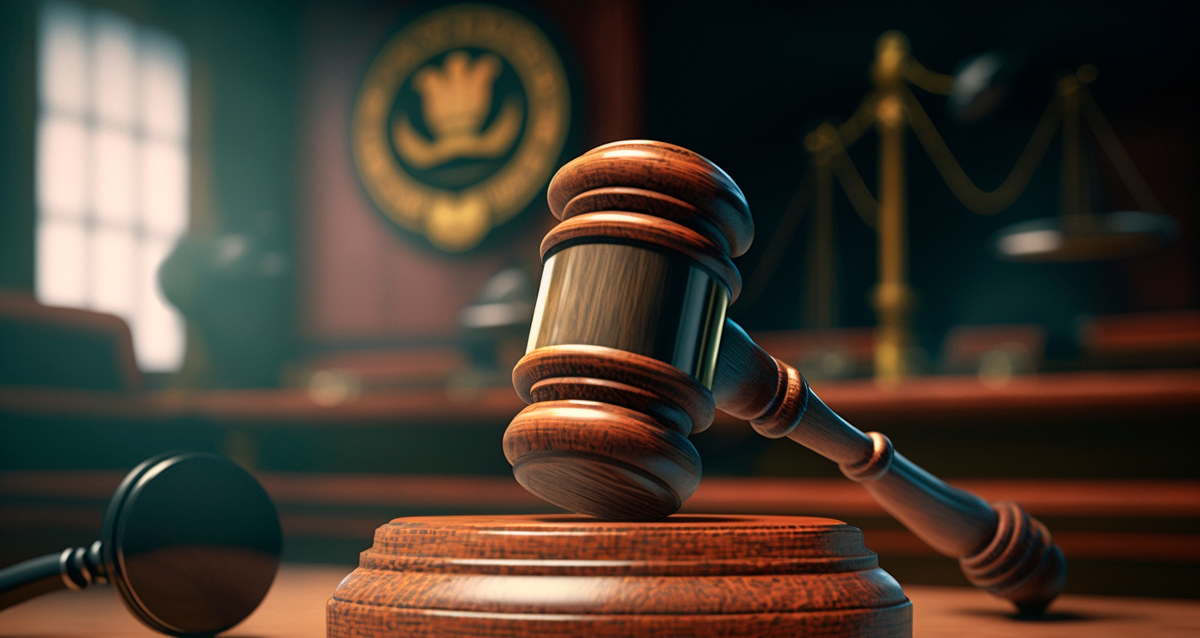The indictment of former President Donald Trump has sent shockwaves throughout the United States, raising numerous questions about the legal process and potential outcomes. In this article, we delve into the details of the indictment, the definition and significance of an indictment, and the next steps we can expect from the court in New York.
In an unprecedented move, the New York court has indicted former President Donald Trump on charges related to financial crimes, obstruction of justice, and other potential violations. These charges stem from investigations conducted by the New York Attorney General’s office and the Manhattan District Attorney’s office, which have been scrutinizing Trump’s business dealings for years.
The indictment signifies that the grand jury has found sufficient evidence to proceed with a criminal trial. This moment marks a turning point in the legal scrutiny of the former president, as it is the first time he has been criminally charged.
Understanding Indictments
An indictment is a formal accusation of a crime presented by a grand jury after reviewing evidence provided by the prosecution. It is an essential step in the criminal justice process, as it ensures that a defendant is not subjected to a trial without probable cause. In other words, an indictment signifies that there is enough evidence to warrant a trial but does not determine guilt or innocence.
Once an individual is indicted, they will typically be arraigned, enter a plea, and proceed to a trial or negotiate a plea deal, depending on the circumstances and the defendant’s choice.
Next Steps for the New York Court
Following the indictment of Donald Trump, the New York court will proceed with the following steps:
Arraignment: Trump will be arraigned, during which he will be formally charged and asked to enter a plea. At this stage, Trump may plead guilty, not guilty, or no contest.
Discovery: Both the prosecution and defense will engage in the discovery process, exchanging evidence and witness lists in preparation for trial.
Pre-trial motions: Attorneys from both sides may file motions to dismiss charges, suppress evidence, or request a change of venue, among other actions.
Trial: If no plea agreement is reached, a trial will commence. The prosecution will present its case first, followed by the defense. Afterward, the jury will deliberate and render a verdict.
Sentencing: If found guilty, Trump will be sentenced by the judge, who will consider factors such as the severity of the crime, the defendant’s criminal history, and any mitigating or aggravating factors.
The Broader Implications of the Indictment
The indictment of former President Trump goes beyond the potential legal consequences for the individual; it also carries broader implications for American politics and society.
Political Impact: The indictment may influence public opinion and have an impact on Trump’s political future. Depending on the outcome, it could either hurt or help his chances of running for office again, as well as the future of the Republican Party.
Precedent for Prosecuting Former Presidents: This case establishes a precedent for holding former presidents accountable for their actions while in office and beyond. It raises questions about the extent to which former presidents should be subject to criminal investigations and the potential consequences of such scrutiny.
Impact on the Public’s Trust: The indictment of a former president may have consequences for the public’s trust in the American political system. If Trump is found guilty, it could serve as a reminder of the importance of holding powerful individuals accountable. Conversely, if he is acquitted or the charges are dismissed, some may view the case as a politically motivated attack, further eroding trust in the system.
Strengthening the Rule of Law: This case highlights the importance of an independent judiciary and the rule of law in the United States. The outcome may serve as a reminder that no individual, regardless of their status or political power, is above the law.
Preparing for the Unpredictable
Given the high-profile nature of the case and the potential ramifications for American politics and society, it is crucial to prepare for a wide range of outcomes. Public officials, the media, and citizens alike should be prepared for intense scrutiny, strong emotions, and potentially divisive reactions.
Ensuring a Fair and Impartial Process: The judiciary must remain committed to conducting a fair and impartial trial, upholding the highest standards of justice, and ensuring that the rule of law prevails.
Responsible Media Coverage: The media plays a critical role in informing the public and shaping public opinion. It is essential that journalists provide accurate, balanced, and responsible coverage of the trial and its implications.
Encouraging Civil Discourse: Public figures and private citizens must promote civil discourse and avoid exacerbating divisions. A respectful, informed, and inclusive dialogue is crucial for navigating the complexities of this case and fostering a healthy democratic process.
The indictment of former President Donald Trump has set the stage for a complex and potentially divisive legal battle, with far-reaching implications for American politics, society, and the rule of law. As the case unfolds, it is crucial that all parties involved – from the courts to the media to the public – uphold the highest standards of justice, fairness, and civility. The outcome of this case will undoubtedly shape the nation’s future, serving as a powerful reminder of the importance of accountability, the rule of law, and the resilience of the American democratic system.

